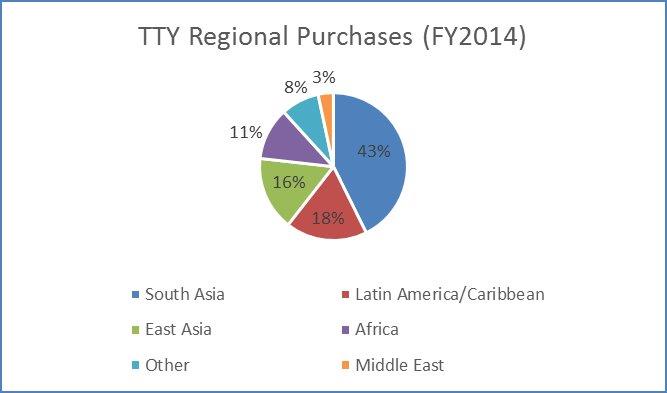|
Name/Title
|
10,000 Villages (TTV)
|
|
Year Started
|
1946
|
|
Sub-title
|
The mission statement of TTV is “to create opportunities for artisans in developing countries to
earn income by bringing their products and stories to our markets through long-term fair trading
relationships
|
|
Website
|
http://www.tenthousandvillages.com/
|
|
Description
|
TTV sources products from small-scale artisans following fair-trade principles, and markets and
sells online and in stores.
|
|
Location
|
Corporate office based in Akron, PA, with more than 390 retail outlets in the United States. TTV
Canada is a separate entity operationally and financially.
|
|
Goods/Materials Procured:
|
Fair trade/artisan goods procured from small-scale producers in 36 countries (2014).
|
|
Sales Volume:
|
In 2014, TTV reported $27.9 million in total sales, reflecting a 0.7% growth over the previous
year’s sales. A high percentage of purchases were made from the South Asia Region in FY2014.
(TTV Annual Report 2013-2014)
|
|
Business Model Employed:
|
TTV engages with and tells the stories of skilled artisans from the developing world who are
unemployed or under-employed and not earning a fair wage for their products, and works with
artisan groups that pay fair wages and show concern for their members’ wellbeing. TTV is a
member of the World Fair Trade Organization, and a Fair Trade Federation Member. In March 2014
TTV was named one of the world’s most ethical companies by the Ethisphere Institute for the 7th
consecutive year. See an example of a supply chain.
|
|
Core Values:
|
TTV’s core values include (accessed from http://www.tenthousandvillages.com/fair-trade):
- Cash advances and prompt final payments: TTV pays artisans up to 50% of the value of an
order before the product is made, and the remainder when the product is shipped. Losses
due to low sales are borne by TTV, not by the producers they source from.
- A fair price: Artisans work with TTV to determine a fair price for their product.
Setting the fair price takes economic and social context into consideration, including
the cost of production materials, a fair wage for the production time, and the skill
level required for production.
- Long-term relationships: TTV strives to place consistent orders with artisan groups year
after year, in order to maintain the relationship between TTV and the artisan community,
and to provide predictable workflow for these communities, giving them a sustainable
source of income that allows for investment in the future.
- Design collaboration: TTV designers and buyers work with artisans to build on their
traditional skills with trend and color information and new product suggestions, to
create products that will appeal to U.S. consumers.
- Environmental responsibility: TTV encourages its staff and artisan partners to employ
sustainable practices and to use recycled and natural materials when possible in order
to meet the “triple bottom line” of economic, environmental, and social sustainability.
|

